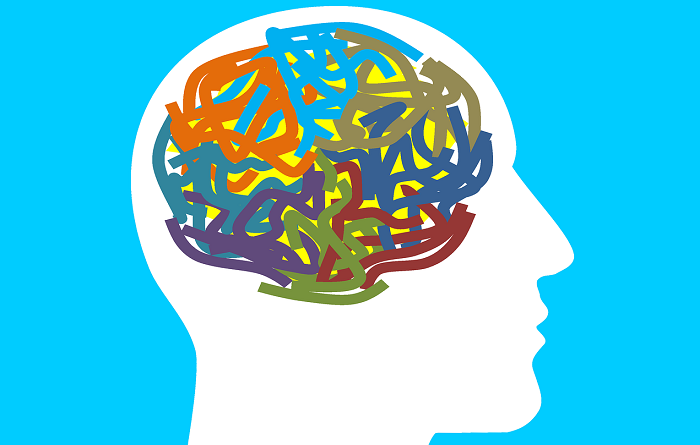
Schizophrenia Can Be Scary… What Can You Do?
Today we’re talking about the impact certain medical treatments can have on schizophrenia and your overall mental wellness. Keep in mind you should always talk to your doctor before confirming your opinion on either a diagnosis or the type of treatment you require. Here’s a bit more information on how to treat schizophrenia.
What Is Schizophrenia?
Schizophrenia is a severe mental ailment marked by negative and psychological symptoms. It causes people to misinterpret reality.
Schizophrenia might present as a result of a mix of delusions, fantasies, disorganized reasoning, and actions that negatively affect daily living and can be debilitating.
Individuals who have this disorder may need to be under management for life. Early treatment can keep the symptoms in check and help the healing process.
Treatment Options for Schizophrenia
As a result of the obscurity in the etiology of schizophrenia, treating the disorder is primarily based on phasing out the symptoms of the disease. Regular treatment plans include:
- Antipsychotic Drugs
Antipsychotics are very powerful and mind-altering drugs. While a few people experience side effects when they use these drugs, most of these adverse reactions fade away after some time. They often come in tablets or liquids, but some are made in intravenous injections that are administered once or twice in four weeks.
Physicians and patients alike can team up to determine the best drug or drug combination and the most appropriate dose of medication to use. One of the most potent medicines to use in this case is clozapine (brand name Clozaril).
- Psychosocial Treatments
Psychosocial treatments are of relevance when a physician and a patient have discovered the most appropriate drug for treating the particular schizophrenia. Understanding and utilizing coping strategies to tackle daily problems of this mental ailment can help patients to go after their aspirations such as schooling or seeking a career path.
What Is Treatment-Resistant Schizophrenia? 
Since one of the major drugs used in treating schizophrenia is clozapine, empirical findings on treatment-resistant schizophrenia have been premised solely on the outcome of patient response to the drug.
A patient is said to be suffering from treatment-resistant schizophrenia if he/she has:
- Undergone a minimum of three sessions of the treatment within the first five years of symptoms using neuroleptic medications sourced from a minimum of 2 various chemical classes that are more than 1,000mg per dose of chlorpromazine for more than a month with no visible sign of relief.
- Shown persistent signs of hallucinations, misjudgments, or apparent psychological disorder after a month of continuous treatment using more than 600mg of chlorpromazine.
Individuals with this condition can be referred to as patients who have been healed, but still have some remaining symptoms that lead to distress or a series of episodes—in spite of many efforts at treating it.
Clozaril Clozapine and Treatment-Resistant Schizophrenia
Scientific findings have hinted that treatment resistance is indeed a common occurrence. When patients don’t respond early to treatment, the result of the treatment might be affected. The diagnosis could change, as well.
The usual recovery path for treatment-resistant schizophrenia is two sessions of treatment using several antipsychotic drugs at recommended doses, each for a minimum of one month with no severe reduction of outward signs.
More than 30 percent of patients who have schizophrenia are treatment-resistant.
Clozapine appears to be the best drug for treatment-resistant schizophrenia, based on the analysis of several types of antipsychotic medications. Clozaril Clozapine is not notably different in action when compared to other antipsychotic drugs in first-instance cases.
The latest research on schizophrenia reveals that many underlying factors cause symptoms of treatment-resistant schizophrenia. For instance, the variation in the distribution of presynaptic dopamine that is usually noticed in schizophrenia is lacking in treatment-resistant schizophrenia.
However, these variations are noticed in anterior cingulate glutamate. As such, it is expected that other antipsychotic drugs that act on dopamine receptors do not relieve the symptoms.
Clozaril Clozapine is unusual as it is the only empirically verified treatment drug for treatment-resistant schizophrenia. The majority of subjects respond to the treatment. As it stands, patients who will respond to clozapine and those who will require some other antipsychotic medications cannot be differentiated from each other.
Clozaril Clozapine is used as a last attempt. The rationale behind this delay includes fear of adverse outcomes and the discomfort of monitoring blood in therapy.
Even if Clozaril Clozapine does not entirely cure schizophrenia, it will be transformative. It helps eliminate the psychiatric symptoms so the individual can function normally. Nonetheless, the procedure of determining its efficiency or otherwise can take a while and is excruciating for the patient.
This analysis of its effectiveness and impacts are quite tasking as there is no substitute medication for treatment-resistant schizophrenia. In spite of its extraordinary efficiency in relieving treatment-resistant schizophrenia, clozapine is not widely used.
Some Side Effects of Clozapine
Like other prescriptions, Clozaril may have some side effects, although many people using this medication do not experience severe adverse effects. Some of the common reactions are headaches, weight gain, dizziness, and vision problems. If any of these symptoms persist, please consult your doctor.
Also, Clozaril Clozapine may increase blood sugar. If you notice symptoms like increased thirst or urination, or you are undergoing treatment for diabetes, discuss any changes you observe with your physician.
Other severe side effects are seizures, facial muscle twitching, uncontrollable movements, and trouble urinating. Don’t ignore serious adverse reactions such as mood changes, swelling of arms or legs, persistent nausea or vomiting, stomach or abdominal pain, and more.
Wrap-Up
Sometimes we don’t know all our options. As with all things medical, if this seems like it might work for you, talk to your doctor!




